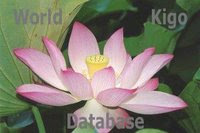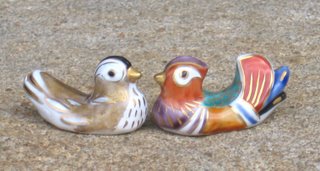:::::::::::::::::::::::::::::::::::::::::::::::::::::::::::::::::::::::::::::::::::::::::::::::::::::
Pair of scales 天秤 Tenbin Daruma
だるま天秤

Photo from my friend Ishino.
The arm is about 14 cm long, but it comes in different sizes.
From Misaki 美咲 (misaki) company.
An old item for fishermen.
Reference
:::::::::::::::::::::::::::::::::::::::::::::::::::::::::::::::::::::::::::::::::::::::::::::::::::::::

source : hiragoms/syoumen.html
両替商当時の天秤
scales of a money changer in Edo
- quote
During Matsuo Basho’s youth, Edo city is in the process of rapid economic growth. In 1672, Basho dared to move to Edo, ambitious to become a haiku master with great popularity. At this time, Basho wrote a haiku praising the prosperity of two Japanese capitals: Edo and Kyoto.
天秤や京江戸かけて千代の春
tenbin ya Kyô Edo kakete chiyo no haru
(1676)
On the giant scales
Kyô and Edo balance
spring of one thousand years
Tr. Natsuishi
In Edo where Basho was residing, a Kabuki actor Danjuro Ichikawa (1660-1704) made his flashy debut in 1673. In 1677, “Edo Suzume”, a guidebook of Edo sites, illustrated by an ukiyo-e painter Moronobu Hishikawa (1618-1694) was published. Commercial wealth and a growing chônin (bourgeois) population gave birth to a lively and gorgeous culture in big cities: Osaka, Kyoto and Edo.
“Tenbin” (scales) in the above haiku suggests money changer’s prosperous activity. So, the haiku shows us that Basho, free from worry and hesitation, was sympathized with the urban atmosphere of Edo under economic and cultural development. Basho’s rhetoric is bold enough to make up “the giant scales” which weighs Kyoto and Edo. His bold rhetoric was directly related to the expanding urbanism of Edo.
. Ban’ya Natsuishi and Matsuo Basho .
Written in 延宝4年, Basho age 33.
quote
During Basho’s youth, Edo city is in the process of rapid economic growth.
In 1672, Basho dared to move to Edo, ambitious to become a haiku master with great popularity. At this time, Basho wrote a haiku praising the prosperity of two Japanese capitals: Edo and Kyoto.
天秤や京江戸かけて千代の春
tenbin ya Kyoo Edo kakete chiyo no haru
Kyoto and Edo,
Calmly balanced on a scale,
Forever in spring.
Tr. Yuasa
. - Edo 江戸 the Castle Town - and Basho .
:::::::::::::::::::::::::::::::::::::::::::::::::::::::::::::::::::::::::::::::::::::::::::::::::::::::
天秤を跳ねておまけの次郎柿
tenbin o hanete omake no jiroogaki
the scales jump
and the price goes down a bit
for Jirogaki persimmons
Andoo 安藤馬城生 Ando san
. jiroogaki次郎柿 Jirogaki persimmons .
魚屋や天秤棒で門の柿
sakanaya ya tenbinboo de mon no kaki
the fishmonger -
with his long pole
(hitting) persimmons near the gate
Hara Gesshuu 原月舟 Hara Gesshu
:::::::::::::::::::::::::::::::::::::::::::::::::::::::::::::::::::::::::::::::::::::::::::::::::::::::
. tenbinboo 天秤棒 pole of a street vendor .
furiuri, furi-uri 振売 peddlers, street vendors
:::::::::::::::::::::::::::::::::::::::::::::::::::::::::::::::::::::::::::::::::::::::::::::::::::::::
[ . BACK to DARUMA MUSEUM TOP . ]
[ . BACK to WORLDKIGO . TOP . ]
:::::::::::::::::::::::::::::::::::::::::::::::::::::::::::::::::::::::::::::::::::::::::::::::::::::::








1 comment:
涙のつぶ怒りのつぶも天秤に
namida no tsubu mo ikari no tsubu mo tenbin ni
tear drops
and anger drops
on the scales
大井恒行 Tsuneyuki Ohi
Tr. Fay Aoyagi
http://fayaoyagi.wordpress.com/2010/07/16/todays-haiku-july-16-2010/
Post a Comment